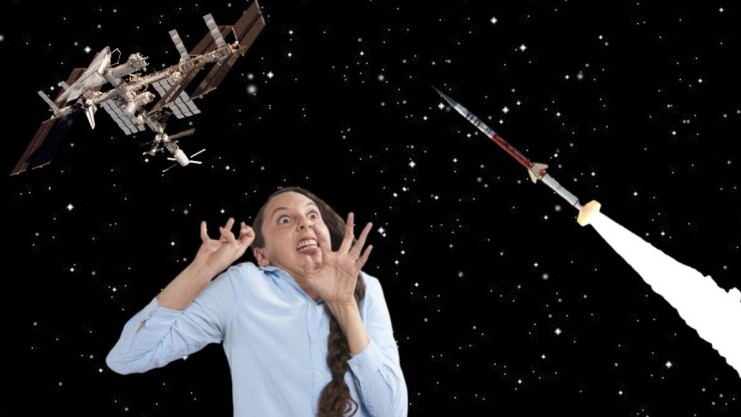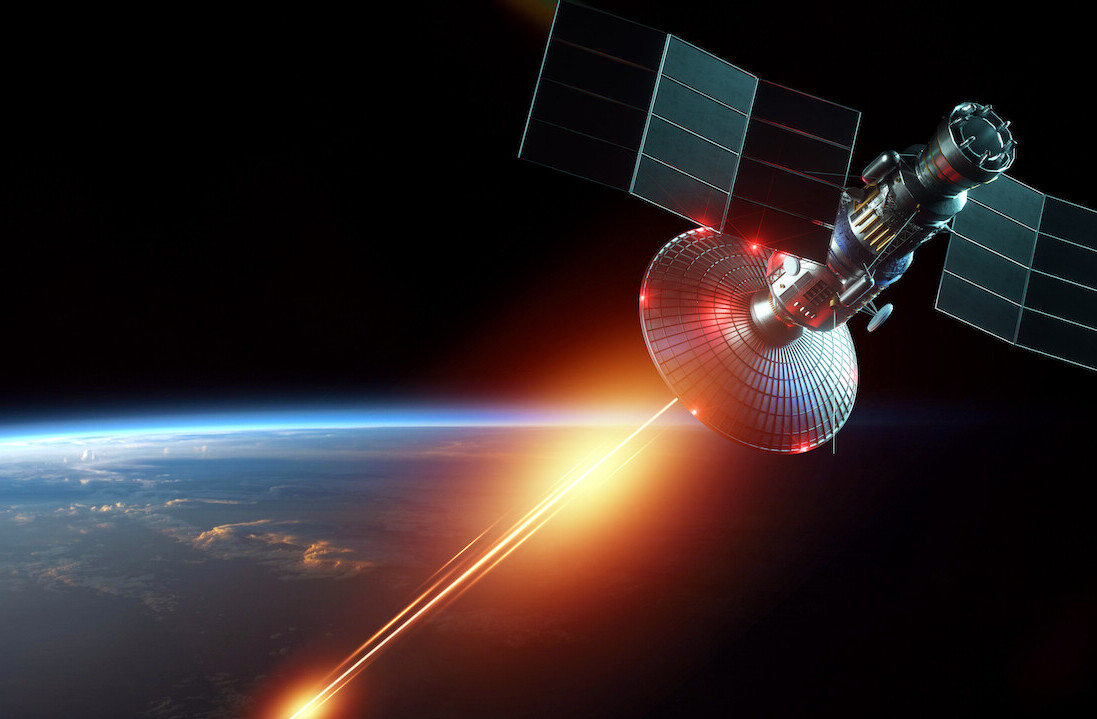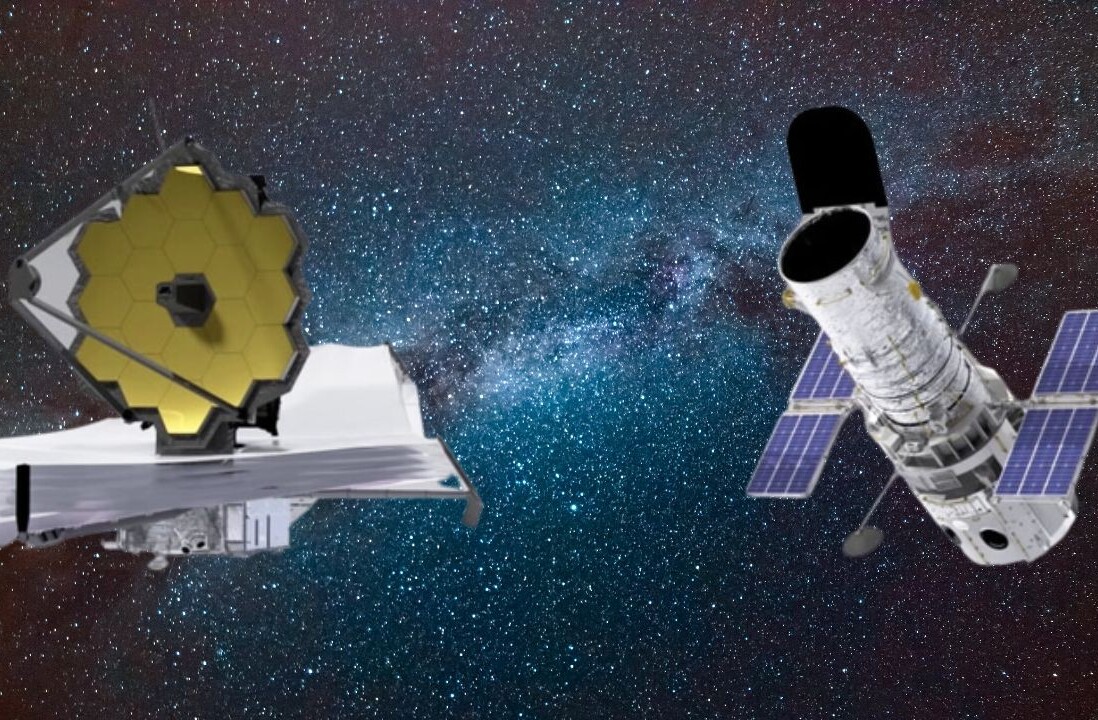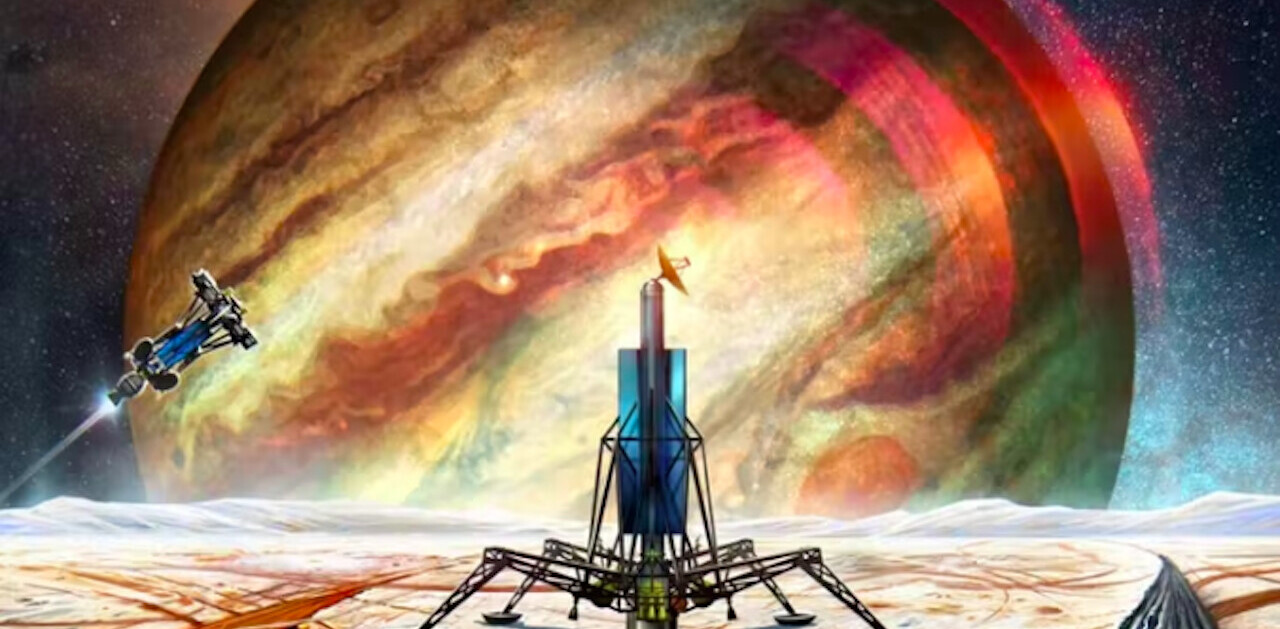
Space just got a lot messier — and more dangerous.
Russia has sparked outrage by shooting down one of its satellites in a missile test on Monday. The move has created an enormous quantity of orbital debris, jeopardized the safety of astronauts, and reignited fears about an arms race in space.
Russia’s Defense Ministry has downplayed the risks of the operation, but there are good reasons to be concerned. Here are three of them:
1. The ISS crew had to shelter in capsules
The missile blew apart a defunct intelligence satellite and scattered thousands of pieces of debris into orbit. The US said the “dangerous and irresponsible” test endangered the crew aboard the International Space Station (ISS).
The seven astronauts — four Americans, a German, and two Russians — were forced to shelter in docked spaceship capsules and prepare for a potential getaway. NASA said the crew members remained there for about two hours. The station continued to pass through or near the debris cloud every 90 minutes.
U.S. Secretary of State Antony Blinken condemned the “reckless” test.
We condemn Russia's reckless test of a direct-ascent anti-satellite missile against its own satellite, creating space debris that risks astronauts' lives, the integrity of the International Space Station, and the interests of all nations.
— Secretary Antony Blinken (@SecBlinken) November 15, 2021
NASA Administrator Bill Nelson said he was “outraged” by the action:
With its long and storied history in human spaceflight, it is unthinkable that Russia would endanger not only the American and international partner astronauts on the ISS, but also their own cosmonauts. Their actions are reckless and dangerous, threatening as well the Chinese space station and the taikonauts on board.
2. It’s put satellites and human spaceflight at risk “for decades to come”
The test has generated over 1,500 pieces of trackable orbital debris, according to US officials. They expect it to produce hundreds of thousands of smaller chunks.
The speed at which this debris hurtles through space means that even a tiny fragment can cause catastrophic damage. Russia’s exercise increases the long-term risks to both astronauts and spacecraft.
The US has also raised concerns about damage to satellites used in weather forecasts, GPS systems, phones, and broadband internet.
“The long-lived debris created by this dangerous and irresponsible test will now threaten satellites and other space objects that are vital to all nations’ security, economic, and scientific interests for decades to come,” said Blinken.
NASA recently estimated that there are around 23,000 pieces of debris larger than a softball orbiting the Earth, and 100 million chunks spanning at least 1 mm. At a time when nations should prioritize clearing up the trash, Russia has deliberately generated more.
3. Fears that space is being weaponized
The test has heightened fears of an arms race in space. Anti-satellite weapons (ASAT) have never been used in warfare, but several countries have tested them in shows of force. As well as Russia, the US, China, and India have used them to successfully shoot down satellites.
Russian politicians say the country is “against the militarization of space,” but critics argue that the test disproves this claim.
“There’s no public safety element… This is purely a military test, a saber-rattling test,” Harvard astronomer Jonathan McDowell told AFP. And it shouldn’t be done.”
The operation has led US politicians to call for further military investment in space.
“Space has already become a warfighting domain,” said Mike Rogers, a Republican congressman on the US House of Representatives armed services committee. “The Biden administration must back rapid defense modernization with a focus on space.”
"The reports that Russia has tested an anti-satellite weapon are concerning and exactly why we stood up Space Command and created the Space Force." @RepMikeRogersAL https://t.co/YvyCR7jevv pic.twitter.com/EgRpMKsJx0
— Armed Services GOP (@HASCRepublicans) November 15, 2021
The test comes amid speculation that Russia may be planning to invade Ukraine. The move has sparked fears of hostilities on Earth extending to the cosmos.
Get the TNW newsletter
Get the most important tech news in your inbox each week.




